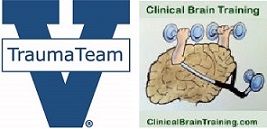In the paper I posted by Gary Klein, they show the evidence, and discuss the background to their decision making model known as “recognition primed decision making”. I know many of you are not going to take the time to read the 100 page manuscript (but I highly recommend it, I’m rereading it now and its great), so I’m going to go over some if it. Sorry I haven’t my podcast on this, but there have been some scheduling issues.
First, Klein says (and I agree) that when an experienced operator, in whatever high-stakes field, encounters a situation (fire, patient, etc.) they do the following:
– Size-up the situation in their mind, assigning it a “schema” based on their previous experience
Explanation: In your mind you record experiences you have had in your profession. With time you categorize those experiences into “boxes” or “schema” of similar situations. In other words, when I see a 80 year old trauma patients on inhalers at home who has 8 right sided rib fractures, I don’t make my clinical decisions based on each of those datapoints individually (elderly+/COPD+/-rib fractures+/- etc.), do it by matching the case to schema I have already created. For this it would be: “old patient with lung problems and big non-lung chest injury”. Then my mind automatically jumps to what I have done for “old patient with lung problems and big non-lung chest injury” in the past and how things have worked out. My plan is based on those past plans and results.
–Make a plan based on how patients with this schema have done in the past
Thus my reaction is: “ICU, pulmonary toilet, check if on steroids, try to find previous assessment of lung function (and get ABG to assess current), pain control (with epidural), get out of bed, incentive spirometry, check for wheezing, give inhalers, DVT prophylaxis, watch out for increasing oxygen requirements, check chest x-ray”. That may sound like a lot, but its pretty automatic and doesnt require much thinking, because I’ve taken care of so many of these patients. Why do I have “watch out for increasing oxygen requirements”? Because in my past, we didnt do that and its worked out badly. “Give inhalers” – same thing, at one point we probably forgot to do that and the patient got intubated. Etc.
–Keep an eye out for data that conflicts with schema, or which indicate plan isn’t working
This is the sign of an experienced provider, inexperienced people are so happy they came up with a plan that they tend to fixate on it, and don’t accept new data that says their plan is wrong. That’s why new officers and residents need to be watched like hawks. They will tend to push a plan through, even though new data is indicating the plan is not working. It’s not just experience, but ego. Experienced leaders know that things go wrong, and you have to adapt. Inexperienced leaders think changing the plan is an insult to their ego (which is fragile as a new leader anyway) and try to make reality adjust to the plan, not adjust the plan to reflect reality.
This is just an intro to these concepts. Think about them and we’ll discuss examples from Klein and real life in the next post.
JY



 Subscribe in iTunes
Subscribe in iTunes